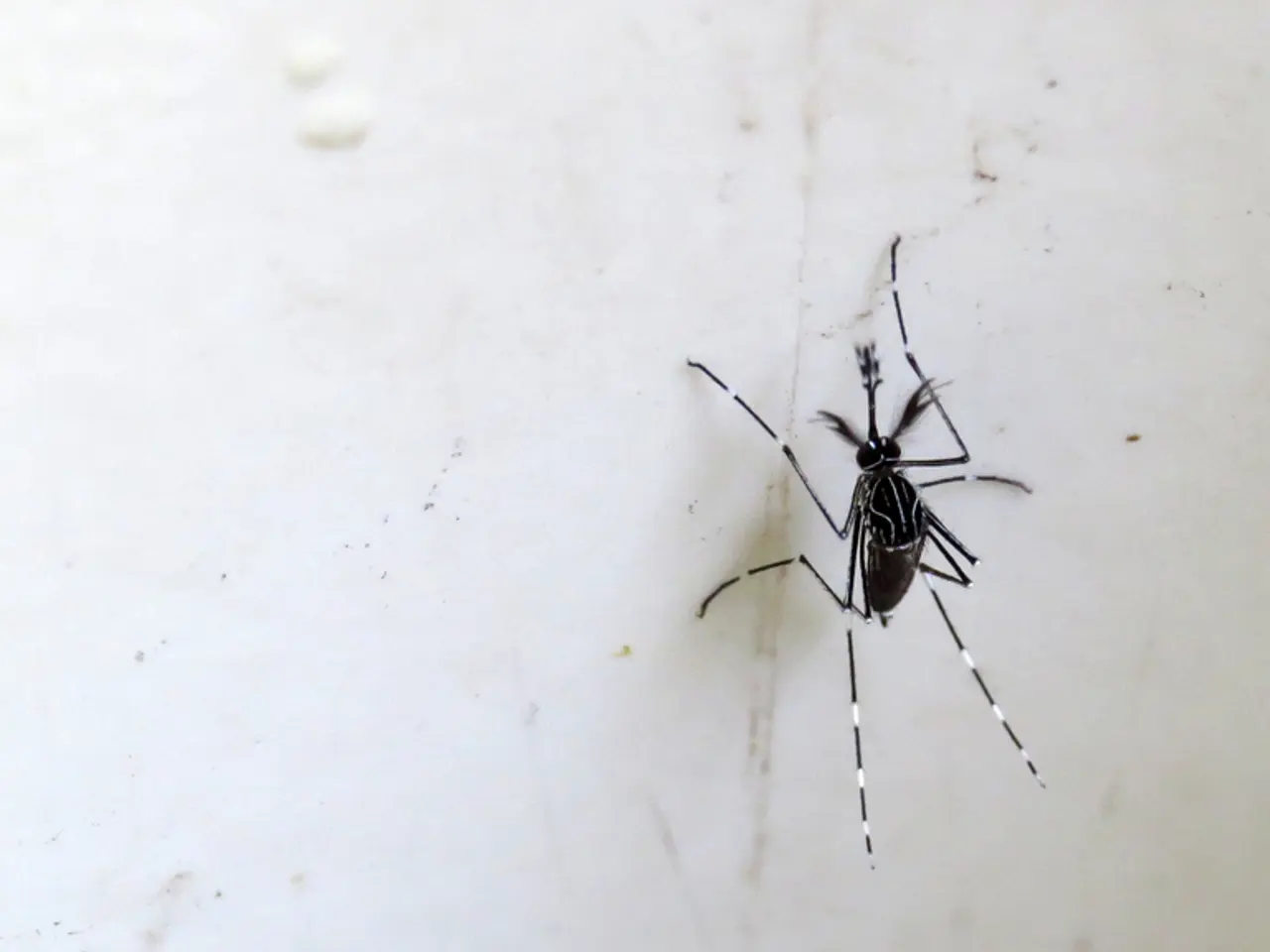Strategies for Effective Prevention of Mosquito Bites
In the warmer months, protecting yourself from both mosquito bites and sunburn is essential. Here's a guide on how to effectively shield yourself from these pesky insects and harmful UV rays.
Mosquito Repellents
Choose EPA-approved repellents containing DEET, picaridin, or oil of lemon eucalyptus (PMD). DEET is the most widely effective, masking mosquito-attracting odors like carbon dioxide and body heat. Picaridin is equally effective but less greasy with a milder scent. PMD is a good plant-based option, but it provides shorter protection.
Apply repellent only to exposed skin and clothing, never under clothing. Reapply every few hours or as recommended, especially after sweating or swimming. Do not use repellent on infants under 6 months (DEET) or children under 3 years (picaridin and PMD). For clothing, use fabrics treated with permethrin, which kills mosquitoes on contact but should never be applied directly to skin. Wearing permethrin-treated clothes significantly reduces bites.
Clothing Tips
Wear long sleeves and pants to cover as much skin as possible, reducing mosquito access. Choose light-colored clothing since mosquitoes are attracted to dark colors. Consider clothing treated with permethrin for added protection without applying repellent directly on the skin-covered areas. For sun protection, wear a wide-brimmed hat, wraparound sunglasses, and use clothing with UV protection where possible.
Sun Protection
Use a broad-spectrum sunscreen with SPF 30+ on all exposed skin, applying 20 minutes before sun exposure and reapplying every two hours or after swimming/sweating. Seek shade during peak UV radiation hours (midday). Stay hydrated to maintain overall skin and body health when outdoors.
Additional Tips
Avoid going out during peak mosquito activity times: just before sunset and early morning. Reduce mosquito breeding sites by eliminating standing water around your environment to lower local mosquito populations. Showering before bed can help avoid mosquito bites. Insect screens on windows can keep mosquitoes out, ensuring a peaceful sleep without the "sssssss" sound.
By combining these approaches—careful repellent application, protective clothing choices, and diligent sun protection—you can significantly reduce your risk of mosquito bites and sunburn effectively. Icaridin can be used as an alternative to DEET for those who are sensitive. The North Rhine-Westphalia Consumer Center recommends these practices for a mosquito- and sunburn-free summer.
[1] Stiftung Warentest [2] Centers for Disease Control and Prevention [4] Mayo Clinic
- For effective mosquito protection, consider repellents containing DEET, picaridin, or oil of lemon eucalyptus (PMD) in North Rhine-Westphalia during your outdoor activities.
- Incorporate health-and-wellness choices like wearing long sleeves and pants in light-colored fabrics for better mosquito resistance, while also focusing on sun protection with broad-spectrum sunscreen of SPF 30+.
- Fitness-and-exercise enthusiasts can still enjoy outdoor-living with the use of permethrin-treated clothing and applying repellent only to exposed skin and clothing.
- To further enhance your skin-care routine, practice additional tips such as staying hydrated, avoiding peak mosquito activity times, and eliminating standing water for a mosquito- and sunburn-free summer lifestyle.




